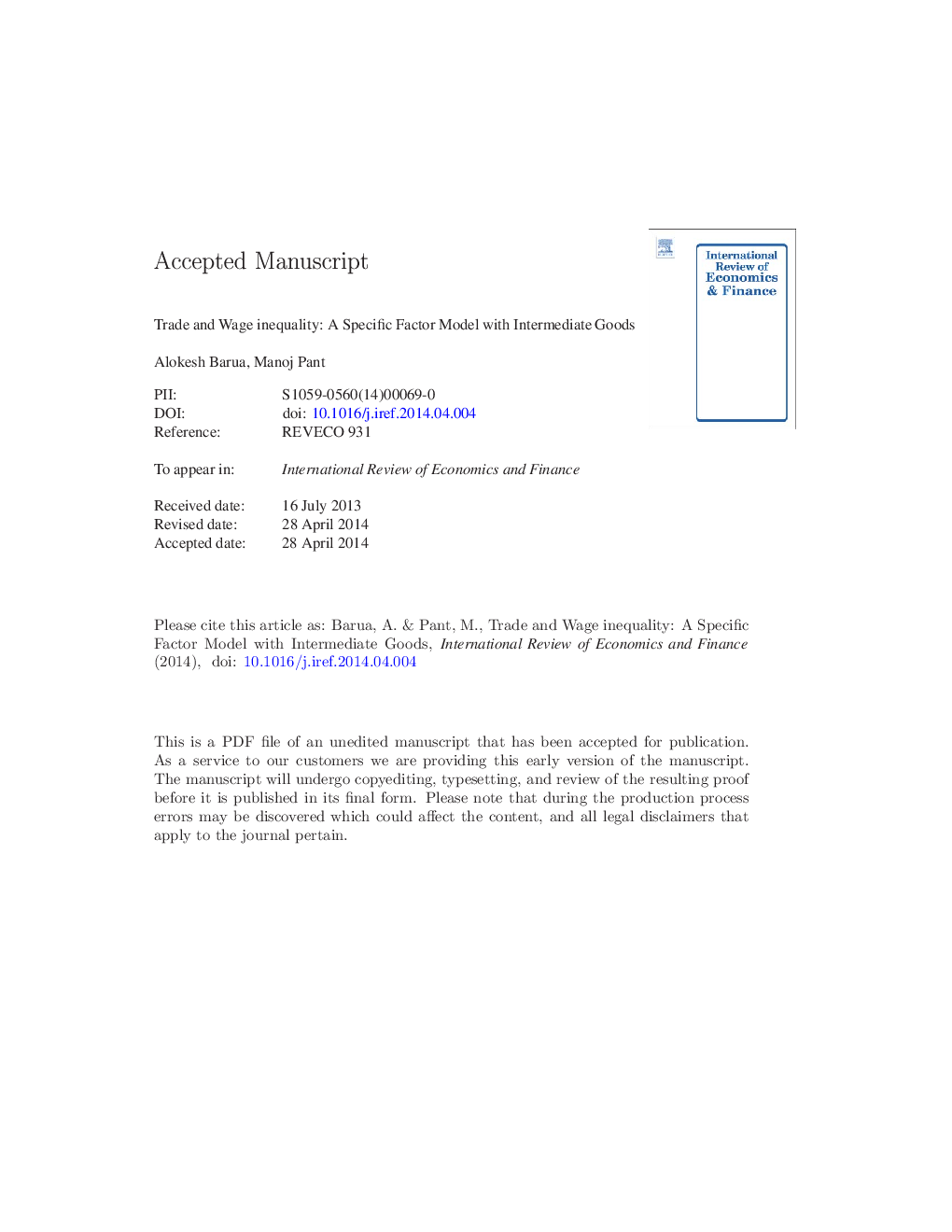| Article ID | Journal | Published Year | Pages | File Type |
|---|---|---|---|---|
| 5083487 | International Review of Economics & Finance | 2014 | 32 Pages |
Abstract
In this paper we try to address the current debate on the link between trade liberalization and wage inequality in developing countries within a general equilibrium framework. For this we set up two distinct models of trade. First, assuming a specific factor model with full employment we show that for a small developing economy wage inequality is related to labour productivity rather than freer trade per se. The model also suggests that while trade may increase wage inequality, this does not imply that poverty increases as wages of unskilled workers increase. However, in the second model with surplus labour specific to the non-traded agricultural good which is also an intermediate good, we show that the two wage rates move in opposite direction; but either of the two wage rates could increase depending on whether the export good is skilled or unskilled labour intensive. Interestingly, in the event of rising wage inequality, the model predicts that absolute poverty may rise.
Related Topics
Social Sciences and Humanities
Economics, Econometrics and Finance
Economics and Econometrics
Authors
Alokesh Barua, Manoj Pant,
